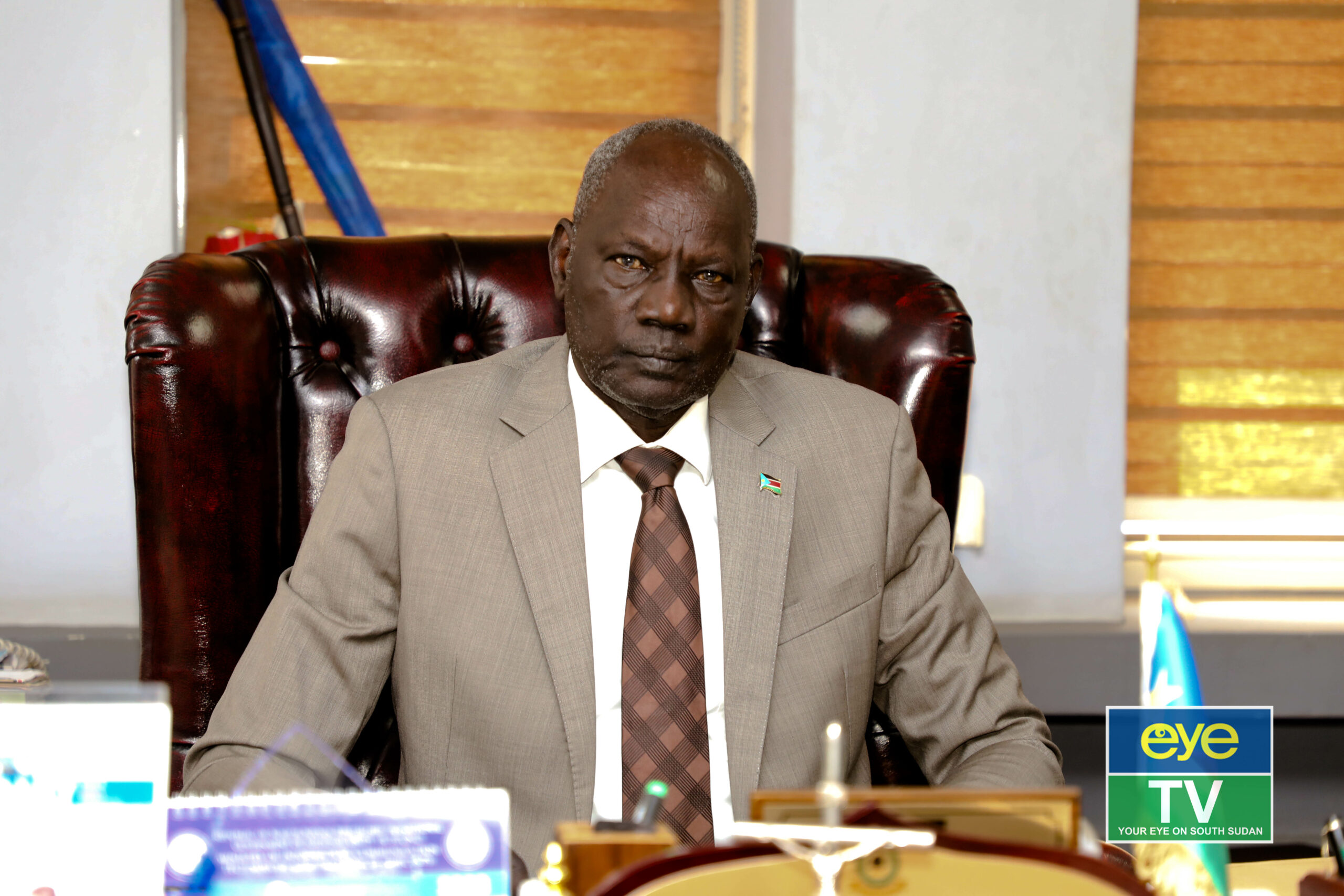The cabinet has approved a budget of more than 60 billion South Sudanese pounds to fund the adjustment of salary structure for public Universities’ lecturers. Continue reading Cabinet passes SSP. 61 billion in salary increment budget for lecturers
Category: Economy
Economy
USAID program empowers 8 more young women to join hotel industry
The U.S. ambassador to South Sudan honored 8 young women trained in hotel management and hospitality in Juba. Continue reading USAID program empowers 8 more young women to join hotel industry
EABC calls for EAC single air transport services agreement
The East Africa Business Council has called for an EAC single air transport services agreement to lower the cost of air transport in the region. Continue reading EABC calls for EAC single air transport services agreement
Canadian govt avails $4.1m in school feeding program
The Canadian government has contributed over 4 million US dollars to support the school feeding programs in three states in South Sudan.
The 5.5 million Canadian dollars which is equivalent to $4.1 million shall be implemented by World Food Programs in 79 schools in Bentiu, Unity State; Kuajok in Warrap State and Rumbek in Lakes State.
Julius Egbeyemi, the Chargé d’ Affaires at the Canadian Embassy in South Sudan said the funding is part of his government’s support towards improving quality education in the country.
“Canada is very pleased to be able to support World Food Programs in South Sudan and Somalia with 11.2 million of which half of it, 5.5 million will contribute directly to the school feeding programs in South Sudan”, he said.
“This contribution is well aligned with Canada’s existing contribution of over 40 million in education programming to improve quality education and school attendance especially for girls,” he added.
For her part, the Minister of General Education and Instruction welcomed the support saying, it will help in the retention of children in school.
According to Awut Deng Achuil, a data from the 2021 education census indicated many schools under feeding program had good attendance.
“Therefore, if we want to address the problem of 2.8 million out of school children in South Sudan, We must provide feeding in schools to retain our children and especially those who are vulnerable.
School feeding program is a strategy designed to improve school attendance and enhance the production and purchases of food within the country.
The program was suspended in April, 2022 due to funding shortfalls where about 178,000 children were affected.
According to the Ministry of General Education and the children-agency, UNICEF, there are about 2.8 million children out of school across South Sudan.
BoSS directs commercial banks to close all govt bank accounts
The Bank of South Sudan has written to commercial banks to close all government bank accounts. Continue reading BoSS directs commercial banks to close all govt bank accounts
Stakeholders urged to invest more in youth development
The Mission Director of the US Agency for International Development has called on stakeholders to invest more in youth development in South Sudan. Continue reading Stakeholders urged to invest more in youth development
Nilpet new MD vows to tackle corruption, invest in Stock market
The new Managing Director of Nile Petroleum Corporation has announced plans to invest the company’s shares in the stock market but will first tackle corruption. Continue reading Nilpet new MD vows to tackle corruption, invest in Stock market
NRA to collect customs duty and taxes on goods from Sudan
The National Revenue Authority says Sudan has agreed to consider its proposal for a special arrangement to collect customs duties and taxes on South Sudan-bound cargo from Port Sudan. Continue reading NRA to collect customs duty and taxes on goods from Sudan
BoSS bans payments in hard currency
The Bank of South Sudan has banned foreign currencies for local payments in the country.
The Bank governor on Jannuary 17, 2022, has written to government agencies, financial institutions, non-governmental organizations, private businesses and the public about the directive.
The move came after the institutions found out that some government agencies and organizations were using foreign currencies for local payments.
Johnny Ohisa Damian added that the Bank has found out foreign currencies were also being used in the government, some hotels, restaurants, and renting of properties among others in the country.
“It has come to the notice o the Bank of South Sudan that some government and financial Institutions, non-governmental organizations, civil society organizations, hotel industry, travel agencies commercial outlets, restaurants service entertainment industries and private business.”
According to Ohisa, the dealings in foreign currency has undermined and threaten to erode public confidence in the South Sudanese Pounds, which is the country’s legal tender.
“This is unacceptable practice has fundamentally undermined and threatened to erode public confidence in SSP as a legal tender and must be entirely discouraged.”
The Bank of South Sudan says it will adopt measures including pricing for all goods and services in South Sudanese Pounds.
It will also assess and impose mandatory payments in SSP to public accounts and compulsory accounts. By mandatory payments, the bank refers to any payment made to or by public utility under a contract or any other voluntary transaction including taxes, customs duties, exercise, levies fees, charges or penalties.
Ohisa has warned that refusal to adhere to the circular is punishable by law.
Central Bank revokes licenses of 2 commercial banks over dormancy
The Bank of South Sudan has withdrawn the licenses of Saint Theresa Rural Development and Southern Rock banks. Continue reading Central Bank revokes licenses of 2 commercial banks over dormancy

